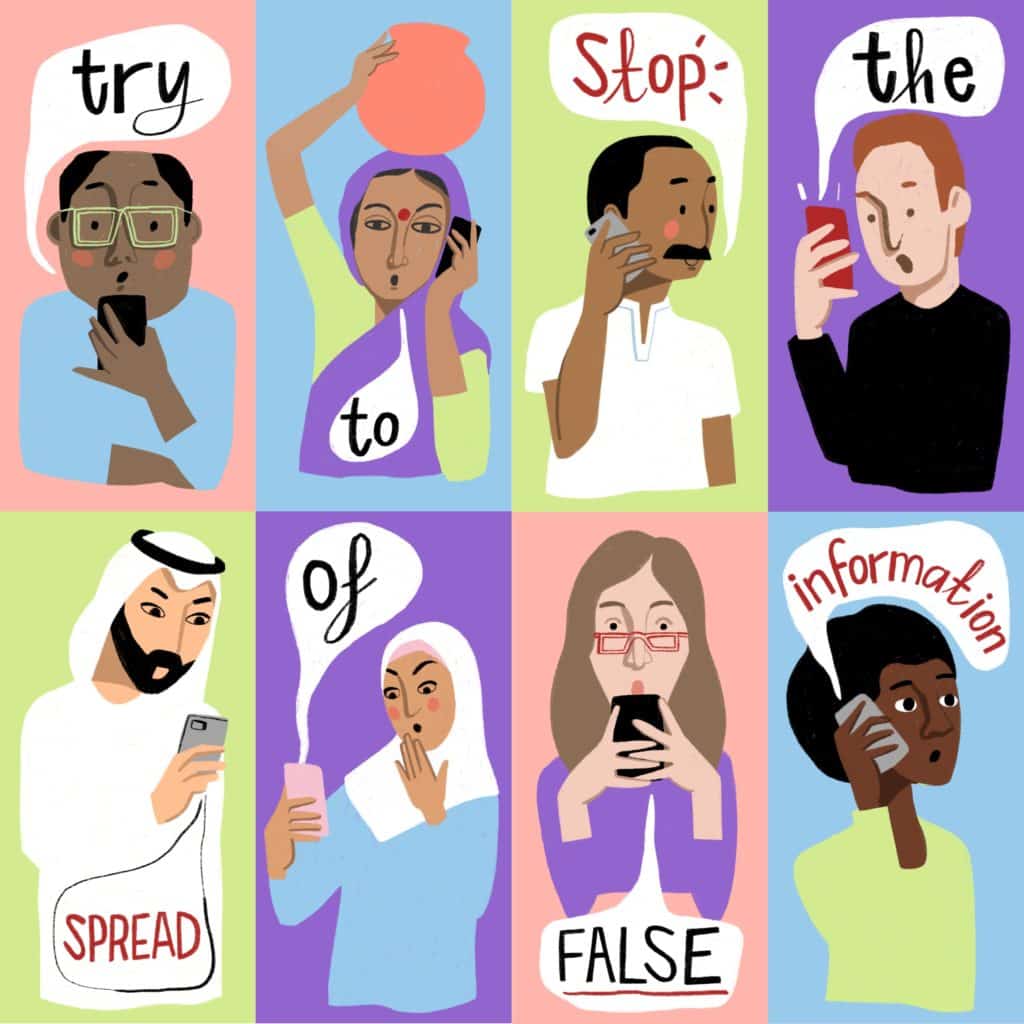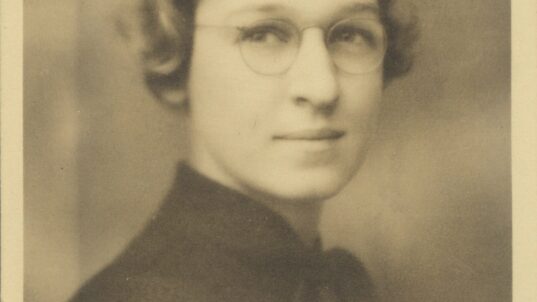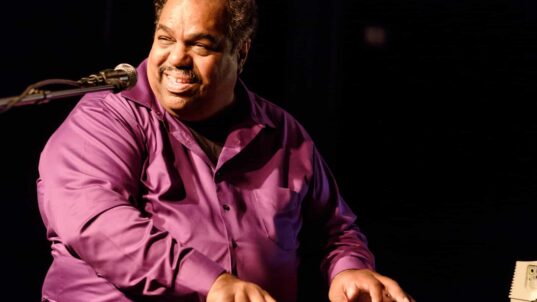
Image by Ruth Burrows, for United Nations Covid-19 Response
It was 1918, and the German army was experiencing defeat after defeat. Fresh troops from the US had joined the Allied war effort, contributing to the Hundred Days Offensive, pushing back the German forces. Workers in the German arms industry went on strike. Supplies were faltering. German sailors revolted rather than follow orders for a final decisive naval battle. One by one, Germany’s allies ended their war efforts. Kaiser Wilhelm, the German head of state, abdicated. The new leadership of Germany signed an armistice treaty ending World War I. Germany’s monarchy was replaced by a parliamentary democracy.
Following the end of the war, right-wing opposition to the fledgling German democracy began telling the big lie: Germany did not lose the war on the battlefield. It lost the war because it was “stabbed in the back”—by the new civilian leadership, by socialists, by communists, and especially by the Jews. The right wing called the civilian leaders of Germany the “November criminals” because they were the ones who gave up on the German war effort.
Adolf Hitler recognized the value of the big lie and used it to advance the fortunes of the Nazi party. He used the big lie to go after the country’s democratic leadership. He blamed the problems of the German economy on the Jews. He then used other big lies to build and sustain his power base. After failing in an attempted coup, for which he served only a nine-month sentence, Hitler used the mechanisms of the democratic state to undermine German democracy from within.
The autocratic use of the “big lie” is based upon a theory that if a lie is so outrageous, it gains a persuasive power. No responsible person could possibly tell such a lie, so it must be true. As the historian Timothy Snyder says, “A big lie structurally is a lie, a falsehood which is so grand that once – that if you believe in it, then you have to disbelieve everyone else. You have to start to think of the of the actual real world around you as a conspiracy which is denying your own true belief, the thing that you actually think is true.” The big lie also works to redirect the followers’ attention to a targeted enemy. In Hitler’s case, the big lie was targeted against the proponents of a free and open society, and, above all, against the Jews.
Big lies are often accompanied by a steady stream of additional lies. Once the autocratic leader succeeds in getting followers to believe in the big lie, the leader must keep lying to keep the followers within that false reality. Competing sources that provide accurate information, like the free press, must be attacked. Hitler called the press the “lying press” to help keep his followers in thrall to the false reality he was creating.
Just imagine how our digital technology interacts with the big lie. We’re surrounded by evidence of how our social media magnifies and spreads disinformation. How can a democracy respond to this threat—while maintaining fundamental rights of free speech and the free press? What role can technology play? Who else can help to combat the big lie? What role can citizens play in resisting it? Just imagine what it would take to create a thriving democracy where the big lie has no fertile soil where it can germinate and flourish. Just imagine how we might curb the ability of a person to sustain the big lie by having a democratic nation of shared commitments to values of truth, equality, and justice.
* * *
“The only thing worse than a liar is a liar that’s also a hypocrite.” – Tennessee Williams (playwright).
This is part of our “Just Imagine” series of occasional posts, inviting you to join us in imagining positive possibilities for a citizen-centered democracy.



